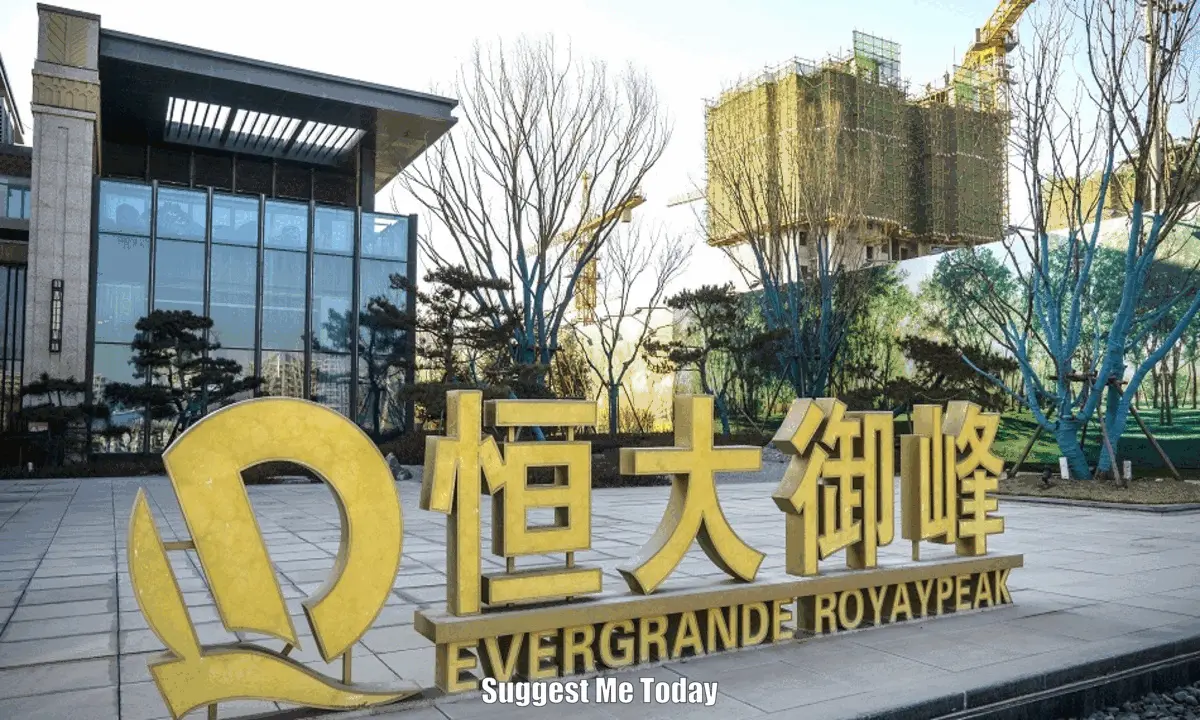In a pivotal move, Hong Kong Judge Linda Chan recently ordered the liquidation of China Evergrande, marking a critical juncture in the downfall of the world's most indebted property developer. This development not only signifies the challenges faced by international investors but also serves as a high-profile test for the jurisdictional reach of Hong Kong's legal system. As the liquidation unfolds, the interaction between Hong Kong's legal norms and the priorities of mainland China's authorities will play a crucial role in determining the fate of Evergrande and the recovery prospects for investors.
Evergrande's Complex Structure:
China Evergrande Group, the subject of the liquidation order, operates as a Hong Kong-based holding company, serving as a key offshore financing platform for the wider group. With over $300 billion in liabilities, the majority of its activities and assets are situated in mainland China. The company's intricate structure, consisting of onshore and offshore entities, presents a challenge for liquidators aiming to navigate the complexities of its financial web. Notably, the liquidators appointed by the Hong Kong court, Eddie Middleton and Tiffany Wong from Alvarez & Marsal, face the daunting task of uncovering the true extent of Evergrande's cross-border exposure.
Read More: Tragic Bristol Stabbing Incident Leaves Community in Shock
Evergrande's Complex Financial Structure summary:
- Overview of Evergrande as a Hong Kong-based holding company.
- Examination of the company's offshore financing platforms and liabilities exceeding $300 billion.
- Challenges posed by Evergrande's extensive onshore and offshore entities.
| "It seems to me that the interests of the creditors will be better protected if the Company is wound up by the court" |
| Hong Kong judge Linda Chan |
Legal Disparities and Challenges:
The legal landscape in Hong Kong, based on English common law, differs significantly from China's socialist legal system, governed by the absolute authority of the Communist Party. The 2021 mutual recognition arrangement between Hong Kong and mainland China offers a potential avenue for creditors seeking redress. However, obtaining approval from one of the designated pilot courts in Shanghai, Shenzhen, or Xiamen adds another layer of complexity. Despite the potential for recognition, there are concerns that mainland courts may reject Hong Kong winding-up orders, as observed in limited previous cases.

Legal Disparities and Mutual Recognition summary:
- Discussion of the legal disparities between Hong Kong's common law system and China's socialist legal framework.
- Analysis of the 2021 mutual recognition arrangement and its implications for creditors.
- Concerns regarding potential rejection of Hong Kong winding-up orders by mainland courts.
International Scrutiny and Creditor Protection:
Amidst the Evergrande crisis, international scrutiny of China's legal and political norms has heightened, impacting foreign investment post-Covid pandemic. The liquidation order brings attention to the challenges of repatriating funds from mainland China, with a focus on completing unfinished residential projects. Nigel Trayers, a restructuring specialist, notes the complexity of extracting funds and highlights that the priority is delivering properties to buyers. This clash of priorities between Beijing and creditors both within and outside China adds a layer of uncertainty to the liquidation process.
International Scrutiny and Creditor Protection summary:
- Exploration of heightened international scrutiny of China's legal and political norms post-Covid pandemic.
- Impact on foreign investment and challenges faced by international creditors.
- Nigel Trayers' insights on the complexities of repatriating funds and the priority of delivering properties.
Enforcement Challenges and Political Backdrop:
If liquidation orders are granted in mainland China, the enforcement process would necessitate collaboration with other creditors. However, the political backdrop, marked by protests from domestic investors in property over losses, introduces further complexities. The relocation of Evergrande's headquarters to Guangzhou, not part of any mutual recognition pilot scheme, raises questions about the potential difficulties in enforcing liquidation orders.
Enforcement Challenges and Political Backdrop summary:
- Overview of the potential enforcement challenges in mainland China.
- Discussion of the political backdrop, including protests from domestic investors and Evergrande's relocation to Guangzhou.
- Analysis of the difficulties in enforcing liquidation orders in regions not covered by mutual recognition pilot schemes.
Clash of Priorities:
- Examination of the conflicting priorities between Beijing and creditors within and outside of China.
- Discussion on the completion of unfinished residential projects as a priority for Beijing.
- Nigel Trayers' insights on the challenges of extracting funds and delivering value to creditors.

As Evergrande's liquidation unfolds, it becomes a litmus test for the efficacy of Hong Kong's legal system in resolving complex financial crises and its compatibility with mainland China's priorities. The clash of legal systems, international scrutiny, and the intricacies of Evergrande's structure all contribute to the unfolding narrative of a financial saga that holds global implications. Investors anxiously await a transparent resolution that safeguards their interests in the wake of this monumental decision.



You must be logged in to post a comment.